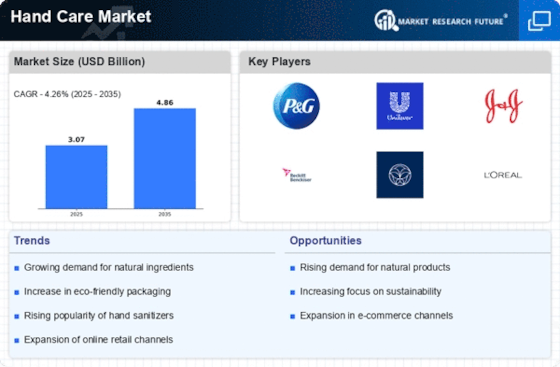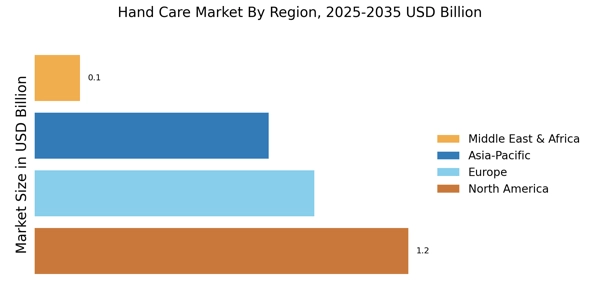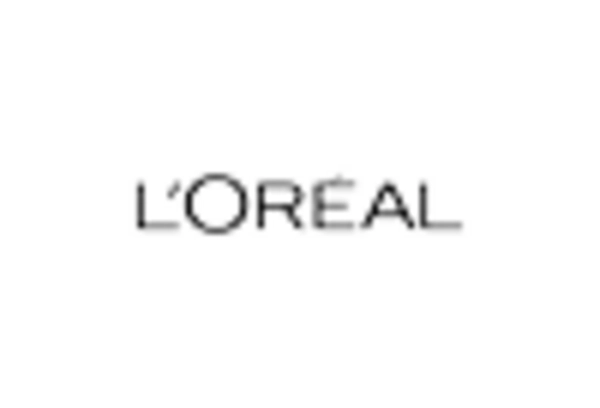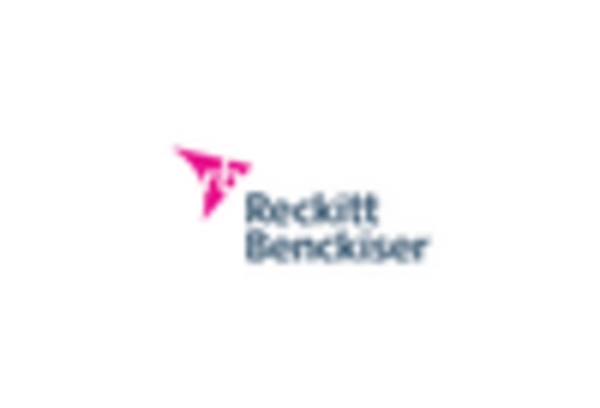Growth of E-commerce Platforms
The expansion of e-commerce platforms is transforming the Hand Care Market by providing consumers with unprecedented access to a wide array of products. Online shopping has become increasingly popular, with a reported increase of 15% in online sales of hand care products over the past year. This shift allows consumers to explore various brands and formulations from the comfort of their homes, leading to informed purchasing decisions. Additionally, e-commerce platforms often feature customer reviews and ratings, which can influence buying behavior. As a result, traditional retailers are adapting their strategies to include online sales channels, thereby broadening their market reach. The convenience and accessibility of e-commerce are likely to continue driving growth in the hand care sector, as more consumers opt for online shopping experiences.
Innovations in Product Formulations
Innovations in product formulations are significantly shaping the Hand Care Market. Manufacturers are increasingly focusing on developing advanced formulations that incorporate natural ingredients, essential oils, and skin-nourishing compounds. This trend is driven by consumer preferences for products that are not only effective but also safe and environmentally friendly. Recent market data indicates that products featuring organic and natural ingredients have seen a growth rate of approximately 12%. Furthermore, the introduction of multifunctional products, such as hand creams that also provide sun protection or anti-aging benefits, is appealing to a broader audience. As consumers seek products that cater to multiple needs, brands are compelled to innovate continuously, ensuring they remain competitive in a rapidly evolving market.
Increasing Awareness of Hand Hygiene
The rising awareness of hand hygiene is a pivotal driver in the Hand Care Market. As consumers become more informed about the importance of maintaining clean hands, the demand for hand sanitizers, soaps, and moisturizers has surged. According to recent data, the hand hygiene segment has experienced a growth rate of approximately 10% annually. This trend is likely to continue as educational campaigns and public health initiatives emphasize the significance of hand hygiene in preventing infections. Consequently, manufacturers are innovating their product lines to include antibacterial and moisturizing properties, catering to the evolving preferences of consumers. This heightened focus on hygiene not only boosts sales but also encourages brands to invest in research and development, thereby enhancing the overall quality and efficacy of hand care products.
Rising Demand for Men’s Grooming Products
The rising demand for men’s grooming products is emerging as a notable driver in the Hand Care Market. Traditionally, hand care has been perceived as a female-centric domain; however, there is a growing recognition of the importance of hand care among men. Recent surveys indicate that approximately 30% of men are now actively seeking hand care products, including moisturizers and sanitizers. This shift is prompting brands to develop targeted marketing strategies and product lines specifically designed for male consumers. The inclusion of masculine scents and packaging is likely to enhance appeal. As this trend continues, it is expected that the hand care segment for men will expand, contributing to overall market growth and diversification.
Focus on Sustainability and Eco-Friendly Products
The focus on sustainability and eco-friendly products is increasingly influencing the Hand Care Market. Consumers are becoming more environmentally conscious, leading to a demand for products that are not only effective but also sustainable. Brands are responding by adopting eco-friendly practices, such as using recyclable packaging and sourcing ingredients responsibly. Recent data suggests that the market for sustainable hand care products has grown by approximately 20% in the last year. This trend is likely to continue as consumers prioritize brands that align with their values. Companies that invest in sustainable practices may not only enhance their brand image but also attract a loyal customer base that is willing to pay a premium for eco-friendly options. This shift towards sustainability is expected to shape the future landscape of the hand care market.

















